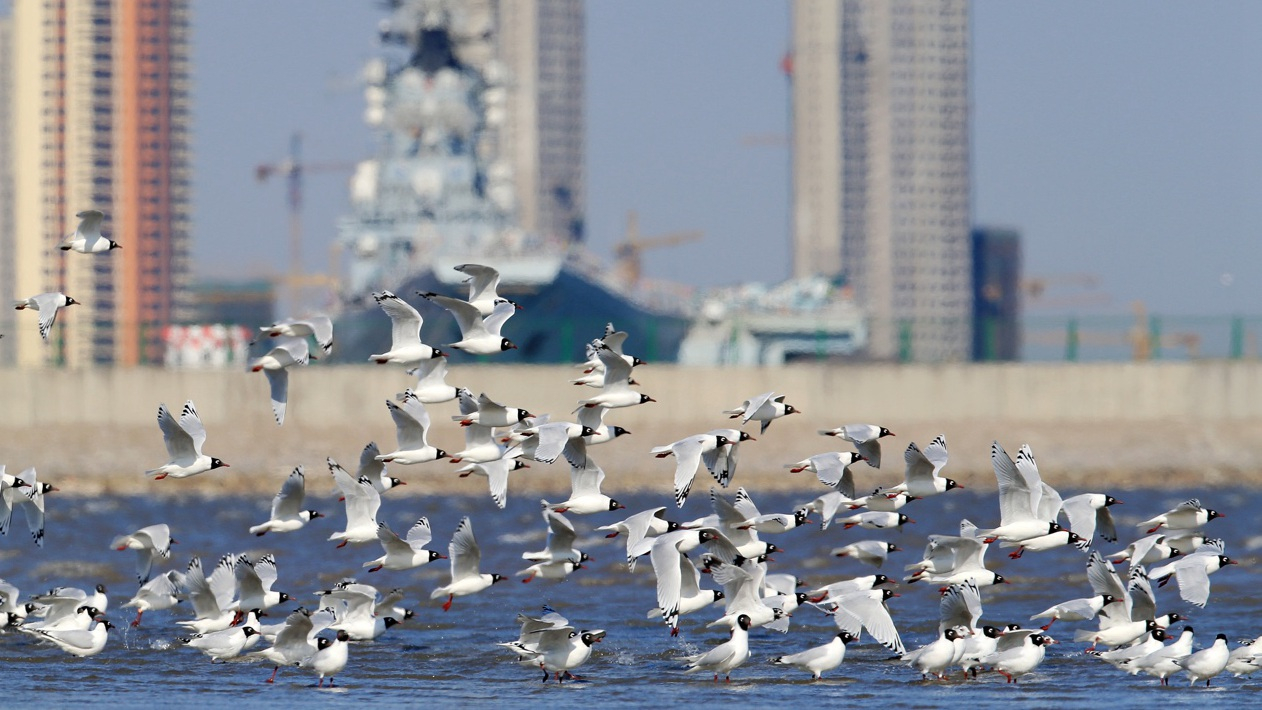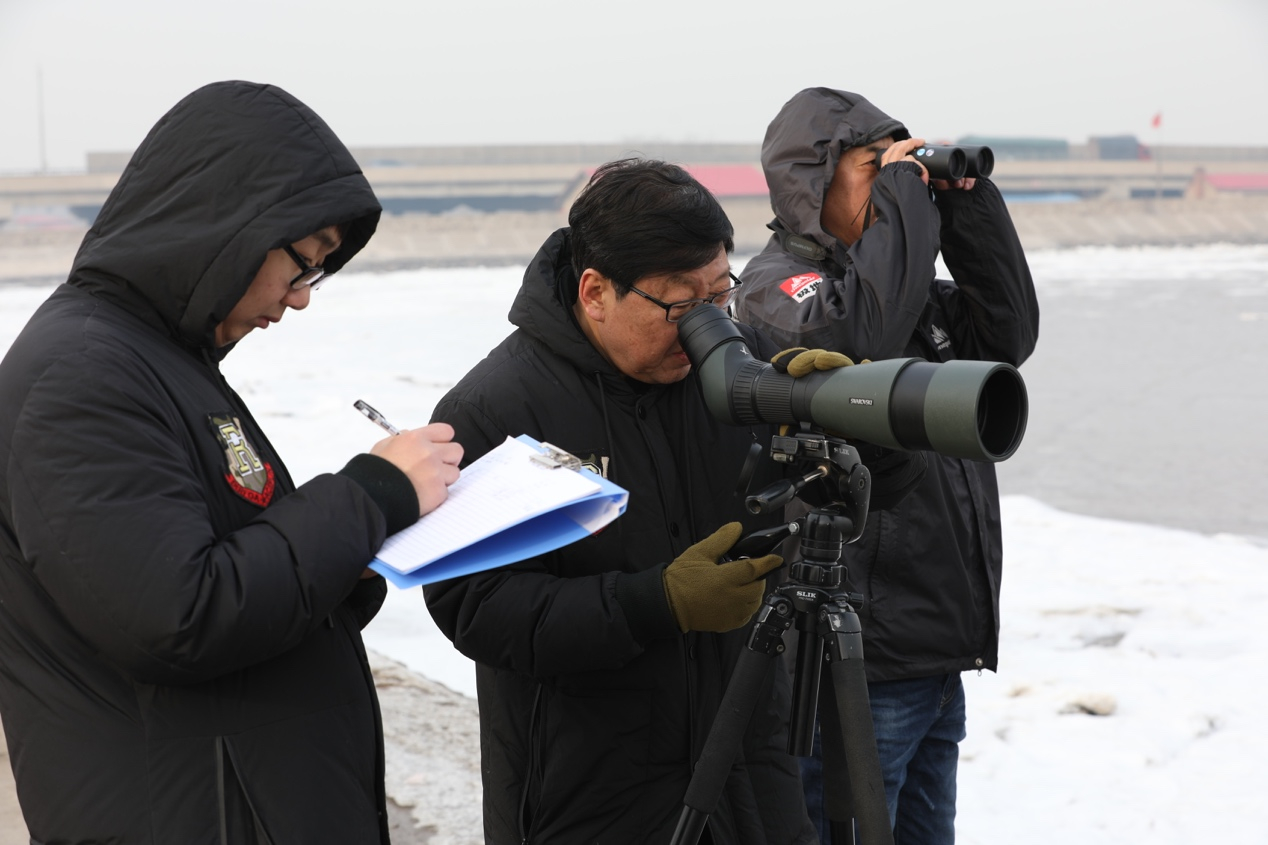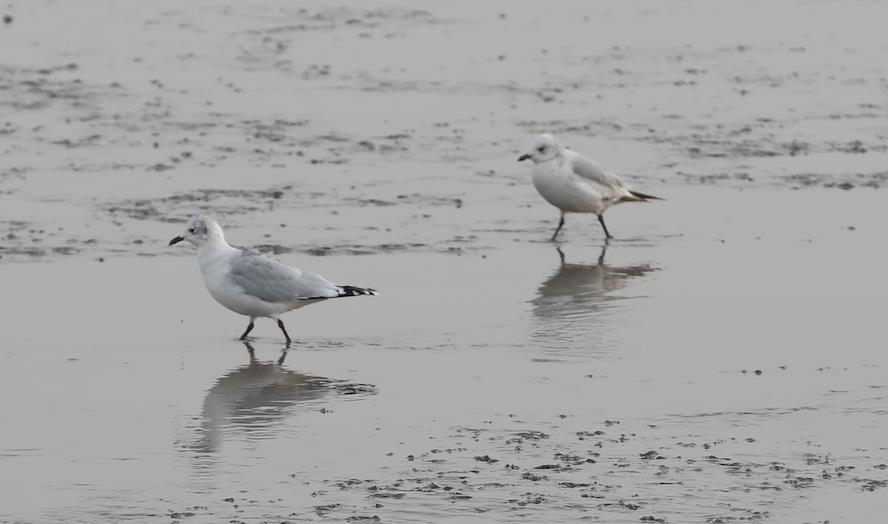
Animal
16:08, 08-Feb-2019
Saving Relict Gulls from destroyed habitat after land reclamation
By Zhao Yunfei, Shen Langlang and Gao Boyuan
02:37

Environmentalists constantly raise the value of the wetlands, mainly because they help diversify ecosystems. One species that hibernates in the wetlands of north China's Bohai Bay now faces possible extinction. Some bird lovers are helping their cause, but they say more needs to be done.
It's a rewarding routine for Wang Jianmin, Director of North Yangtze River Wetland Protection Center, and his friends to patrol China's coastlines almost once a week. They are protecting the bird habitat in Bohai Bay, where many migrant birds hibernate in the intertidal zone.
For years, the volunteers have been protecting relict gulls, a species now in the "vulnerable" category by the International Union for Conservation of Nature. There are only 15,000 of them still left in the world.

Wang Jianmin (middle) and his fellow volunteers keeping track of Relict Gull's migrant route and living conditions. /CGTN Photo
Wang Jianmin (middle) and his fellow volunteers keeping track of Relict Gull's migrant route and living conditions. /CGTN Photo
"Relict gulls face a big threat. We sincerely hope that local governments, where the gulls breed and live pay close attention to it. They should establish offices for research and protection," Wang said.
Every winter, relict gulls fly to northern port city of Tianjin. They reside in the wetland area. Clams and shrimp are their major food. Without food, they die. But people and other creatures love clams and shrimp, too.
"Seagulls always gather by the shore. But our mudflat is significantly destroyed. Overfishing is an issue, and the land reclaiming has occupied much of the fine ecological resources. Relevant departments haven't taken much of the responsibility," Wang said.

Overfishing leaves migrant birds little food. /CGTN Photo
Overfishing leaves migrant birds little food. /CGTN Photo
In the last few decades, rampant land reclamation for port development had been destroying the habitat of relic gulls. The volunteers have united to raise awareness to boost the breeding of the endangered species.
Between 2002 and 2017, China legally approved a total of nearly 1.6 billion square meters of land reclamation. But that only accounts for 12 percent of the newly added construction land in coastal areas across the country over the same period.
In 2018, China introduced regulations to demolish illegally reclaimed land and stopped approving general reclamation projects. Volunteer organizations have played an important role in getting the orders implemented.

There are only 15,000 relict gulls left. Although the number is increasing, their living condition is still facing threat. /CGTN Photo
There are only 15,000 relict gulls left. Although the number is increasing, their living condition is still facing threat. /CGTN Photo
"We are the eyes of these issues. And the government is the first to beat the crime. We report the illegal activities to the police, and they should take action," said Zhu Baoguang, another volunteer.
The volunteers say it's crucial to raise awareness. They say bird protection should be a global effort for the sake of the ecosystem as a whole.
(Cover image from VCG)

SITEMAP
Copyright © 2018 CGTN. Beijing ICP prepared NO.16065310-3
Copyright © 2018 CGTN. Beijing ICP prepared NO.16065310-3